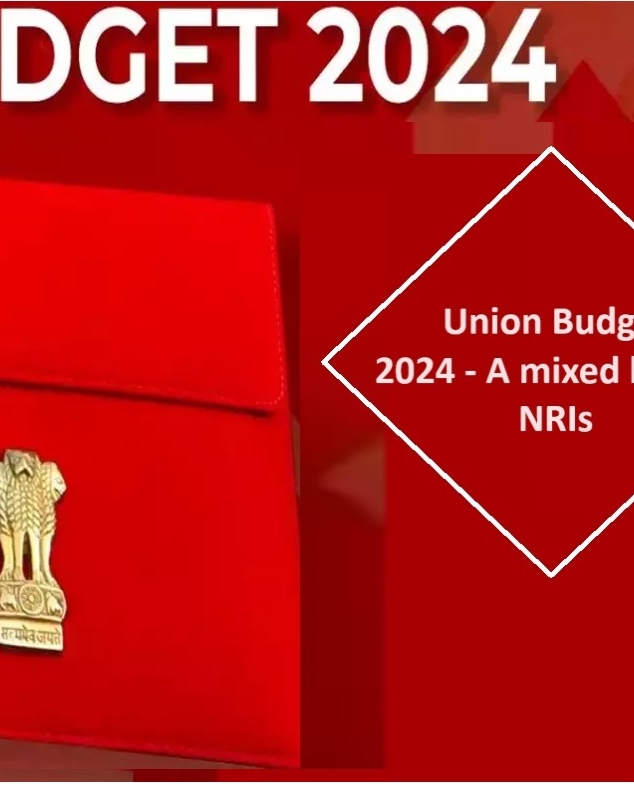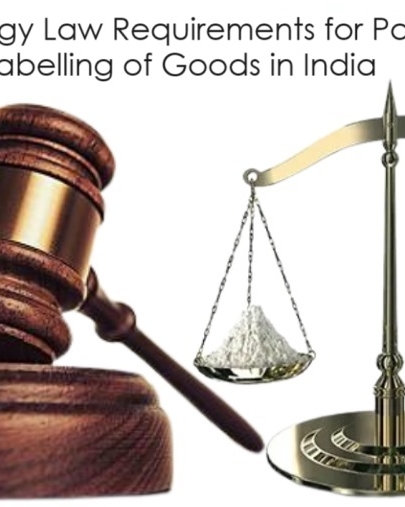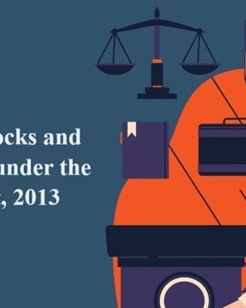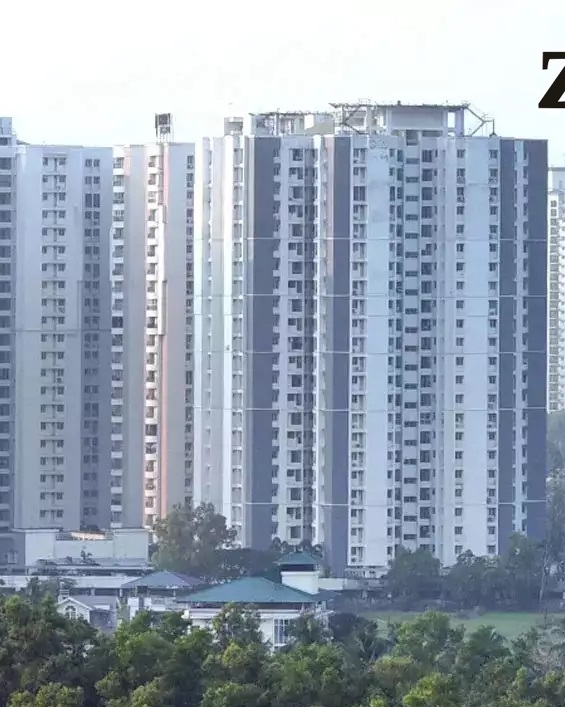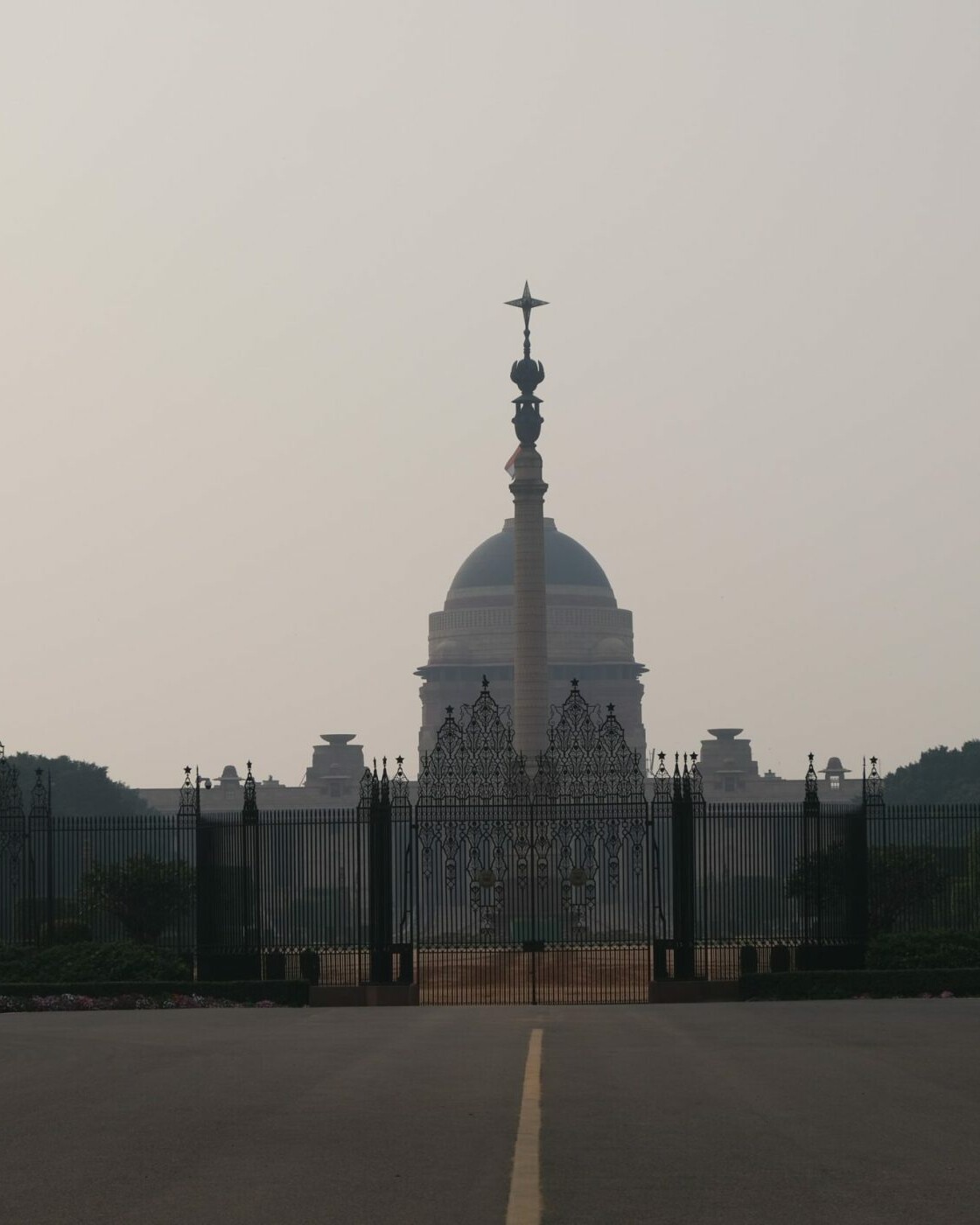
Highlights:
Corporate Brief
- The Notification no. RBI/2023-24/60 dated 13.09.2023 issued by RBI pertaining to Responsible Lending Conduct – Release of Movable / Immovable Property Documents on Repayment/ Settlement of Personal Loans.
- Notification no. RBI/2023-24/64 dated 30.09.2023 issued by RBI regarding a review on withdrawal on circular of Rs. 2000/- bank notes.
- Notification no. 644(E) dated 01.09.2023 issued by the MCA pertaining to the amendment w.r.t. the Limited Liability Partnership (Second Amendment) Rules, 2023.
- Circular no. SEBI/HO/DDHS/DDHS-POD2/P/CIR/2023/ 151 dated 04.09.2023 issued by SEBI pertaining to Mechanism for Sharing of Information by Credit Rating Agencies (CRAs) to Debenture Trustees (DTs).
- Circular no. SEBI/HO/GSD/TAD/P/CIR/2023/149 dated 04.09.2023 issued by SEBI pertaining to Change in mode of payment w.r.t. SEBI Investor Protection and Education Fund Bank a/c.
- Circular no. SEBI/HO/DDHS-PoD-2/P/CIR/2023/153 dated 11.09.2023 issued by SEBI pertaining to Board nomination rights to unitholders of Infrastructure Investment Trusts (InvITs).
- Circular no. SEBI/HO/DDHS-PoD-2/P/CIR/2023/154 dated 11.09.2023 issued by SEBI pertaining to Board nomination rights to unitholders of Real Estate Investment Trusts (REITs).
- Notification no. RBI/2023-24/58 dated 04.09.2023 issued by RBI pertaining to the Operation of Pre-Sanctioned Credit Lines at Banks through Unified Payments Interface (UPI).
- Notification no. RBI/2023-24/61 dated 13.09.2023 issued by RBI pertaining to PM Vishwakarma Scheme.
Real Estate Brief
- Press Release dated 04.09.2023 issued by Real Estate Regulatory Authority – National Capital Territory (NCT) of Delhi (Delhi RERA Authority) regarding registering of the real estate project to avoid penalty.
- Order dated 05.09.2023 issued by Rajasthan Real Estate Regulatory Authority (Rajasthan RERA Authority) for submission of service drawings.
- Order dated 11.09.2023 issued by Real Estate Regulatory Authority – National Capital Territory (NCT) of Delhi (Delhi RERA Authority) for issuing of directions in respect of maximum number of dwelling units that can be constructed on various sizes of plots.
- Order dated 11.09.2023 issued by Gujarat Real Estate Regulatory Authority (Gujarat RERA Authority) for modification in the delegation of powers for the quasi-judicial proceedings regarding execution applications to the Adjudicating Officer.
- Order dated 11.09.2023 issued by Gujarat Real Estate Regulatory Authority (Gujarat RERA Authority) for distribution of complaints/cases to be adjudicated by different benches in Gujarat RERA.
- Order dated 14.09.2023 issued by Rajasthan Real Estate Regulatory Authority (Rajasthan RERA Authority) under Section 37 of the Real Estate (Regulation and Development) Act, 2016 and Regulation 23 of the Rajasthan Real Estate Regulatory Authority Regulations, 2017.
- Order dated 20.09.2023 issued by Maharashtra Real Estate Regulatory Authority (MahaRERA Authority) for extension of timelines for obtaining MahaRERA Real Estate Agent Certificate of Competency.
- Order dated 27.09.2023 issued by Real Estate Regulatory Authority – National Capital Territory (NCT) of Delhi (Delhi RERA Authority) for issuing of directions in respect of providing certain details by the real estate agents.
- Letter dated 15.09.2023 by Uttar Pradesh Real estate Regulatory Authority (UP RERA Authority) regarding instructions to banks for adherence to provisions of the Real Estate (Regulation and Development) Act, 2016 and UP RERA Project Account Directions, 2020 and circulars of RBI regarding bank accounts of projects in UP RERA.
NCLT Estate Brief
- Companies Leasing Aircrafts to Indian Carriers Can Now Repossess Their Aircraft Without The Imposition of a Moratorium Under IBC Rules.
Litigation Brief
- Supreme Court Unveils Blueprint for Validating and Enforcing Wills.
- Condonable period under limitation act shall stand extended w.e.f. 15th march 2020.
- Provisions of Order XXXVIII Rule 5 of CPC are not a mandate for the Court’s exercising powers under Section 9 of the A&C Act.
Corporate Brief
Notification no. RBI/2023-24/60 dated 13.09.2023 issued by RBI pertaining to Responsible Lending Conduct – Release of Movable / Immovable Property Documents on Repayment/ Settlement of Personal Loans.
- The notification emphasises to promote responsible lending conduct and address customer grievances, RBI has issued guidelines for the release of property documents upon repayment of personal loans.
- In terms of the guidelines on Fair Practices Code issued to various Regulated Entities (REs) since 2003, REs are required to release all movable / immovable property documents upon receiving full repayment and closure of loan account. However, it has been observed that the REs follows divergent practices in release of such movable / immovable property documents leading to customer grievances and disputes. To address the issues faced by the borrowers and towards promoting responsible lending conduct among the REs, several directions have been issued including inter alia:
- The REs shall release all the original movable / immovable property documents and remove charges registered with any registry within a period of 30 days after full repayment/ settlement of the loan account.
- The borrower shall be given the option of collecting the original movable / immovable property documents either from the banking outlet / branch where the loan account was serviced or any other office of the RE where the documents are available, as per her / his preference. In case of delay in releasing of original movable / immovable property documents or failing to file charge satisfaction form with relevant registry beyond 30 days after full repayment/ settlement of loan, the RE shall communicate to the borrower reasons for such delay. In case where the delay is attributable to the RE, it shall compensate the borrower at the rate of ₹5,000/- for each day of delay.
- In case of loss/damage to original movable / immovable property documents, either in part or in full, the REs shall assist the borrower in obtaining duplicate/certified copies of the movable / immovable property documents and shall bear the associated costs, in addition to paying compensation as indicated at paragraph 6 above. However, in such cases, an additional time of 30 days will be available to the REs to complete this procedure and the delayed period penalty will be calculated thereafter (i.e., after a total period of 60 days).
- The compensation provided under these directions shall be without prejudice to the rights of a borrower to get any other compensation as per any applicable law.
Notification RBI/2023-24/64 dated 30.09.2023 issued by RBI regarding a review on withdrawal on circular of Rs. 2000/- bank notes.
- The circular refers to previous notifications regarding the withdrawal of ₹2000 banknotes. As of September 29, 2023, 96% of the ₹2000 banknotes in circulation as of May 19, 2023, have been returned, leaving only ₹0.14 lakh crore still in circulation.
- With effect from October 8, 2023, banks shall stop accepting ₹2000 banknotes for credit to accounts or exchange to other denomination banknotes.
Notification no. 644(E) dated 01.09.2023 issued by the MCA pertaining to the amendment w.r.t. the Limited Liability Partnership (Second Amendment) Rules, 2023.
- Ministry of Corporate Affairs has issued Notification No. 644(E) on September 1, 2023, to introduce key amendments to the Limited Liability Partnership (Second Amendment) Rules, 2023. These amendments bring significant changes to the regulatory framework governing Limited Liability Partnerships (LLPs) in India. The Form 3, Information with regard to limited liability partnership agreement and changes, if any, made therein, and Form 4, (Notice of appointment, cessation, change in name/ address/ designation of a designated partner or partner and consent to become a partner/ designated partner, have been replaced and new Form 3 and 4 have been introduced.
Circular no. SEBI/HO/DDHS/DDHS-POD2/P/CIR/2023/ 151 dated 04.09.2023 issued by SEBI pertaining to Mechanism for Sharing of Information by Credit Rating Agencies (CRAs) to Debenture Trustees (DTs).
- SEBI (Credit Rating Agencies) Regulations, 1999 (“CRA Regulations”) and circulars used thereunder require sharing of certain information for CRAs to Debenture Trustees (DTs).
- Due to large quantum of information submitted daily by CRAs to DTs, as well as short timelines mandated for disclosure of this information by DTs, it is essential that the data shared by CRAs be structured and submitted in a specified format for easier accessibility and analysis of the data.
- Accordingly, based on discussion with CRAs and DTs, an excel template is mentioned which the CRAs shall use for their daily submissions of rating revisions to DTs.
- Circular shall be applicable with effect from October 1, 2023 and CRAs shall report on their compliance with this circular.
- Monitoring shall be done in terms of the half-yearly internal audit for CRAs, mandated under Regulation 22 of the CRA Regulations.
Circular no. SEBI/HO/GSD/TAD/P/CIR/2023/149 dated 04.09.2023 issued by SEBI pertaining to Change in mode of payment w.r.t. SEBI Investor Protection and Education Fund Bank a/c.
- As per circular no. SEBI/HO/ISD/CIR/P/2020/135 dated July 23, 2020 wherein SEBI had prescribed that the amounts shall be credited to the SEBI Investor Protection and Education Fund through online mode or by way of a demand draft (DD) in favour of the Board (i.e. SEBI IPEF). Henceforth, remittances to SEBI IPEF shall be made only through a link provided by SEBI.
- Vide this Circular SEBI has informed that a new bank account to facilitate market participants to make payment to SEBI Investor Protection and Education Fund (SEBI IPEF) has been opened by SEBI.
- While making the remittances online, through the link, remitters shall furnish the requisite information like name of the payer, PAN, mobile number, email ID, the purpose for which payment is made, the amount to be paid.
Circular no. SEBI/HO/DDHS-PoD-2/P/CIR/2023/153 dated 11.09.2023 issued by SEBI pertaining to Board nomination rights to unitholders of Infrastructure Investment Trusts (InvITs).
- SEBI circular dated September 11, 2023, Regulation 4(2)(h) of SEBI (Infrastructure Investment Trusts) Regulations, 2014 (“InvIT Regulations”) inter-alia provides that unitholder(s) holding not less than ten percent of the total outstanding units of the InvIT, either individually or collectively, shall be entitled to nominate one director on the board of directors of the Investment Manager, in the manner as may be specified by the Board.
- Vide this Circular SEBI has prescribed, the framework to exercise board nomination rights by the Eligible Unitholder(s). The said framework has been attached as Annexure A to this circular.
- This circular also provides that the Investment Manager of the InvIT shall, within ten days from the end of each calendar month, review whether the Eligible Unitholder(s) who have exercised the board nomination right, continue to have/hold the required number of units of InvIT and make a report of the same. The Investment Manager of the InvIT shall submit such report to the Trustee of the InvIT.
Circular no. SEBI/HO/DDHS-PoD-2/P/CIR/2023/154 dated 11.09.2023 issued by SEBI pertaining to Board nomination rights to unitholders of Real Estate Investment Trusts (REITs).
- SEBI circular dated September 11, 2023, Regulation 4(2)(g) of SEBI (Real Estate Investment Trusts) Regulations, 2014 (“REIT Regulations”) inter-alia provides that unitholder(s) holding not less than ten percent of the total outstanding units of the REIT, either individually or collectively, shall be entitled to nominate one director on the board of directors of the Manager, in the manner as may be specified by the Board.
- Vide this Circular SEBI has prescribed, the framework to exercise board nomination rights by the Eligible Unitholder(s). The said framework has been attached as Annexure A to this circular.
- This circular also provides that the Manager of the REIT shall, within ten days from the end of each calendar month, review whether the Eligible Unitholder(s) who have exercised the board nomination right, continue to have/hold the required number of units of REIT and make a report of the same. The Manager of the REIT shall submit such report to the Trustee of the REIT.
Notification no. RBI/2023-24/58 dated 04.09.2023 issued by RBI pertaining to the Operation of Pre-Sanctioned Credit Lines at Banks through Unified Payments Interface (UPI).
- RBI has expanded the scope of the Unified Payments Interface (UPI) to include pre-sanctioned credit lines from Scheduled Commercial Banks. Currently, savings account, overdraft account, prepaid wallets and credit cards can be linked to UPI.
- The scope of UPI is now being expanded by inclusion of credit lines as a funding account.
- Under this facility, payments through a pre-sanctioned credit line issued by a Scheduled Commercial Bank to individuals, with prior consent of the individual customer, are enabled for transactions using the UPI System.
- Banks may, as per their Board approved policy, stipulate terms and conditions of use of such credit lines. The terms may include, among other items, credit limit, period of credit, rate of interest, etc.
Notification RBI/2023-24/61 dated 13.09.2023 issued by RBI pertaining to PM Vishwakarma Scheme.
- The Indian government has launched the ‘PM Vishwakarma Scheme’ to assist artisans and craftspeople in advancing their skills and businesses. This program includes offering credit support at reduced interest rates, with the government providing interest subvention.
- Eligible lending institutions should follow the guidelines issued by the Ministry of Micro, Small and Medium Enterprises for implementation.
Real Estate Brief
Press Release dated 04.09.2023 of Delhi RERA regarding registering of the real estate project to avoid penalty.
A press release was issued by Delhi RERA Authority to once again clarify that as per Section 3 of the Real Estate (Regulation and Development) Act, 2016, the real estate projects that are being developed in NCT of Delhi which fall under the following categories are required to be compulsorily registered with the Authority:
- The projects that are being developed in part or full, on plot size of more than 500 sq. meters for purpose of sale or lease.
- The projects which envisage construction of more than 8 flats, apartments, floors, shops, commercial or office units, in all phases, on any size of plot for purpose of sale or lease.
- The projects which envisage plotting on an area of more than 500 sq. meters for purpose of sale or lease.
- All those projects falling under the abovementioned 1 to 3, for which completion certificate could not be obtained before 01.05.2017.
As per the said Press Release dated 04.09.2023, non-registration of the projects can invite penalty up to 10% of the estimated cost of project or imprisonment up to 3 years, or both.
Order Number F.1 (31)/RJ/RERA/2019/ D-2317 dated 05.09.2023 of Rajasthan RERA regarding submission of service drawings:
In suppression of the earlier order No. F1(31)RE/RERA/2019/2181 dated 14.07.2023 for registration of real estate projects, the Rajasthan RERA Authority has issued the following directions with regards to the mandate for submission of service drawings for registration of the project:
- At the time of registration, the promoter is required to upload declaration stating that the service drawings through the project profile modification module before the submission of OC/CC/partial CC.
- The promoter is also required to declare on affidavit that he shall submit all service drawings through project profile modification module before submitting the OC/CC/partial CC in accordance with order dated 10.08.2023 and numbered P.11(9) NVV/2020/Part-III issued by Urban Development and Housing Department or UDH.
- Where OC/CC/partial CC has been submitted before 10.08.2023, the same to be accepted after submission of service drawings according to the checklist issued by UDH.
Order Number 1 (128)/Directions/RERA/2023/ 2560-65 dated 11.09.2023 of Delhi RERA regarding the maximum number of dwelling units (DUs) that can be constructed on various sizes of plots:
As per the Unified Building Bye Laws, 2016 and as per the orders of the Hon’ble Supreme Court of India dated 14.03.2008 in W.P(C) No. 4677 of 1985, M.C. Mehta vs. Union of India and ors., certain specific number of dwelling units have been allowed depending on the area of plot.
As per the Unified Building Bye Laws, 2016, all DUs should have a kitchen.
In order to ensure the compliance with the said order dated 14.03.2008 of the Hon’ble Supreme Court of India, the Delhi RERA Authority, vide Order No. F.1 (128)/Directions /RERA/2023/2560-65 dated 11.09.2023, issued the directions to the concerned civic bodies in respect of the building plans sanctioned after 15.09.2023 to have the following mandates:
- Clearly indicating the total number of dwelling units that can be constructed on the plot and marking each dwelling unit separately on the plan.
- Clearly indicating the total number of dwelling units that can be constructed on each floor.
- Identifying and marking each dwelling unit as – numerator to be the dwelling unit number and denominator be the total number of units allowed.
- Mentioning by the promoter/ builder/ collaborator the dwelling unit number given by the concerned civic body in the agreement(s) to sale and sale deed(s).
The Delhi RERA Authority also directed the sub-registrars not to register in case where:
- More units than the number of dwelling units permitted on a given plot under the said order dated 14.03.2008 of the Hon’ble Supreme Court of India.
- The sale deed of a dwelling unit does not mention the dwelling unit number given by the civic body in the sanctioned building plan.
Order Number GujRERA/Order-79 dated 11.09.2023 of Gujarat RERA regarding modification in delegation of powers for the quasi-judicial proceedings regarding execution applications to the Adjudicating Officer:
To address the need for deciding the quasi-judicial proceedings of execution applications under Section 40 of the Real Estate (Regulation and Development) Act, 2016 in a time bound manner, the Gujarat RERA Authority vide its order number GujRERA/Order-79 dated 11.09.2023, has decided to take the services of the Adjudicating officer, who has requisite qualification and experience of conducting of quasi-judicial matters in the process of execution proceedings. Further, vide its said order dated 11.09.2023, Gujarat RERA Authority delegated the power to the Adjudicating Officer to be part of the respective bench(es) to proceed with matters related to execution applications under Section 40. Further, to give effect to the said order dated 11.09.2023, the Authority directed that Order No. 55 dated 18.10.2021 will not be in force henceforth.
Order Number GujRERA/Order-80 dated 11.09.2023 of Gujarat RERA regarding distribution of complaints/cases to be adjudicated by different benches in Gujarat RERA:
Vide its Order number GujRERA/Order-80 dated 11.09.2023, Gujarat RERA Authority has constituted different benches comprising of Hon’ble Chairperson and/or Members to adjudicate complaints.
Order Number F4(1)/RJ/RERA/2017/Part/D-2324 dated 14.09.2023 of Rajasthan RERA regarding the amounts to be deposited for extension of registration of the projects:
Vide its order dated 14.09.2023, Rajasthan RERA Authority consolidated previous orders dated 16.08.2019, 13.05.2020, 22.05.2020, 10.08.2020, 25.08.2020, 17.03.3031, 30.03.2021, 28.06.2021, 27.09.2021 and 13.04.2023, in respect of the amounts to be deposited on annual basis for extension of the registration of the projects, and directed as follows:
|
Type of Extension |
Extension Fee | Standard Fee | Penalty |
| In cases where first extension of the registration is applier for 6 months or less | 50% of the registration fee | NIL | Only in case of delay, 50% of the registration fee |
| In cases where the extension of more than 6 months is required before the expiry of the validity period of registration of the project | 50% of the registration fee | 100% of the Registration Fee | NIL |
| In cases where validity period of project registration has expired | 50% of the registration fee | An amount equal to the registration fee, if the delay does not exceed 90 days | 50% of the registration fee |
| Twice the amount of registration fee, if the delay exceeds 90 days |
Under Rajasthan RERA Authority’s order no. 873 dated 22.05.2020, if the extension of the registration has been applied for more than one year, then the abovementioned fee will increase proportionately on per year basis.
Order Number 41A/2023 dated 20.09.2023 of Maharashtra RERA regarding extension of timelines for obtaining MahaRERA Real Estate Agent Certificate of Competency:
To bring consistency in the practices of real estate agents, enhance knowledge and awareness and with a view to ensure that the real estate agents are professionally qualified to help/ assist home buyers/ allottees, MahaRERA Authority had previously introduced basic real estate agent training and certification course. The Authority vide its order dated 20.09.2023, has issued further directions in respect of the MahaRERA Real Estate Agent Certificate of Competency:
- With effect from 01.11.2023, the real estate agents with valid certificates of competency can apply for registration/ renewal of registration.
- Existing registered real estate agents are required to obtain the said Certificate of Competency before 01.01.2024, failing which action would be initiated against them.
- The mandate applies to the individual real estate agents, and in case of firms/ companies/ organizations – their authorized signatory as well as the employees/ staff/ officers etc. by whatever designation called working in firms/ LLP/ companies/ organizations of real estate agents, who deal and interact with homebuyers/ allottees for effecting the transactions in real estate projects.
- With effect from 01.01.2024, promoters of real estate project shall ensure that the names and addresses of the real estate agents, if any, to be given in compliance of Section 4(2)(j) of the Real Estate (Regulation and Development) Act, 2016 shall be of only such real estate agents who have MahaRERA Real Estate Agent Certificate of Competency.
Order Number F.2(Guidelines on AML & CFT) AG/ RERA/ 2023/2925 dated 27.09.2023 of Delhi RERA regarding providing certain details by the registered real estate agents:
Vide its order dated 27.09.2023, the Delhi RERA Authority directed the registered real estate agents to provide PAN no., contact no., turnover during the last three assessment years being 2023-24 in the format provided in the said order, latest by 15.10.2023.
Letter dated 15.09.2023 by Uttar Pradesh Real estate Regulatory Authority (UP RERA Authority) regarding instructions to banks for adherence to provisions of the Real Estate (Regulation and Development) Act, 2016 (‘Act’) and UP RERA Project Account Directions, 2020 and circulars of RBI regarding bank accounts of projects in UP RERA.
A letter was written by UP RERA Authority to the General Manager and Coordinator, State Level Bankers Committee, Bank of Baroda Building regarding the practices adopted by banks regarding issue of banks not following the norms and provisions as per the UP RERA Account Directions, 2020 dated 24.12.2020. Further, some banks have issued cheque books, debit cards and allowed net banking payment facilities to Promoters from the separate account of the project, whereas as per Section 4(2)(l)(D) of the Act, withdrawal from separate account is allowed only when the promoter submits the certificates of Chartered Accountant, Architect and Engineers to the concerned bank branch and the banker is satisfied that the amount requested can be withdrawn in view of the certificates so provided.
Therefore, the UP RERA Authority has, vide its letter dated 15.09.2023, requested the General Manager and Coordinator, State Level Bankers Committee to issue instructions to all the scheduled banks operational in the State of UP with regards to opening and operation of the accounts opened/being opened for a real estate project registered/ applied for being registered with the UP RERA Authority.
NCLT Brief
Companies Leasing Aircrafts to Indian Carriers Can Now Repossess Their Aircraft Without The Imposition of a Moratorium Under IBC Rules
On October 3, 2023, the Ministry of Corporate Affairs (“MCA”), in accordance with Section 14(3) of the Insolvency and Bankruptcy Code, 2016, (“the Code”) issued a notification granting aircraft lessors the authority to maintain possession of and reclaim their aircraft, aircraft engines, airframes, and helicopters, even in cases where the lessee company is undergoing insolvency proceedings before the appropriate adjudicating authority. This new development in the notification explicitly exempts transactions and agreements pertaining to the specified machinery under the Cape Town Convention and Protocol, 2001 from the application of sub-section (1) of Section 14 of the Code. This amendment is expected to significantly alleviate the challenges faced by the aviation sector by instilling trust and confidence in companies engaged in aircraft leasing.
Cape Town Convention and Protocol, 2001 and Indian Compliance
The Cape Town Convention and Protocol of 2001 primary objective is to enhance the efficiency and security of creditors through a system for registering security interests in tangible assets and offering remedies in case of defaults. While India is a signatory to the treaty, it has not yet ratified it. However, the recent notification appears to align with the Convention and Protocol, superseding the IBC’s moratorium provision for aviation lessors. This move signifies a shift towards honouring international agreements and ensuring the rights of aircraft lessors in the insolvency process.
Status of Go First Airlines insolvency proceedings post MCA notification
The earlier moratorium was imposed by National Company Law Tribunal, Delhi in the voluntary insolvency proceedings filed by Go First [Originally Go Air (Inida) Limited], owned by Wadia Group putting a shield from the lessors and creditors and also restraining the Directorate General of Civil Aviation (“DGCA”) from accepting any applications for de-registration of aircraft from any lessors. The moratorium prompted the lessors to move to the Appellate Tribunal to seek relief. Getting their plea rejected by the Appellate Tribunal, the lessors approached the High Court of Delhi for the deregistration of their aircraft and raised the stance of the moratorium, being in contravention of the Cape Town Convention and Protocol of 2001, to which India was also a signatory.
The aircraft lessors have raised concerns over the Resolution Professional (“RP”) alleged failure to uphold legal standards in maintaining the aircraft. In response to these concerns, the Court has sought clarification regarding the roles of both the RP and DGCA. It’s worth noting that Go First Airlines had a total debt of approximately INR 114.63 Billion since the insolvency proceedings commenced in May 2023.
Seeking the notification published by MCA as discussed above, RP has asked for an adjournment in the disputed case to consult with the Committee of Creditors (“CoC”) and understand the further course of action.
Litigation Brief
Supreme Court Unveils Blueprint for Validating and Enforcing Wills
CASE ANALYSIS: Meena Pradhan & Ors. vs. Kamla Pradhan & Anr., Civil Appeal No.3351 Of 2014
Decided by Hon’ble Supreme Court on 21st September, 2023
Factual Matrix:
- The factual matrix of the present case is that a man named Bahadur Pradhan (“Testator”) had two marriages, one with Meena Pradhan, and they had two children, Ravi Kumar and Kumari Sushma. The Testator divorced his first wife and married Kamla Pradhan, with whom he had a child named Kumari Ritu.
- Just a week before the Testator passed away in 1992, he made a Will on July 30th, 1992. He did this in front of two witnesses, Lok Bahadur Thapa (who wasn’t examined) and Suraj Bahadur Limboo (who was a witness in the case).
- After the Testator’s death, the second wife along with her child (“Plaintiffs”) filed a case to claim the Testator’s assets. Initially, a succession certificate was granted to Respondent No.1 by the Ld. Additional District Judge in Jabalpur on July 5, 1995.
- However, this decision was later overturned by the Hon’ble High Court of Madhya Pradesh on November 17, 1995. The High Court cancelled the entire proceeding, stating that the authenticity and genuineness of the will needed to be determined in the right legal proceedings.
- Following the High Court’s decision, both Plaintiffs initiated proceedings under Section 276 of the Indian Succession Act 1925 to obtain Probate or Letter of Administration. The Defendants (first wife with her children) contested the validity of the Will favoring the Plaintiffs, also questioning the Testator’s marriage to Plaintiff No.1.
- Ultimately, the Civil Court in Jabalpur upheld the Will’s validity in favor of the beneficiaries based on the testimony of a witness, Suraj Bahadur Limboo. The Defendants appealed this decision, but the High Court affirmed it, rejecting their claim that the Will was forged. Hence, the Appeal was filed by the Defendants before Hon’ble Supreme Court against the order of Hon’ble High Court.
Issue in question:
Whether there are sufficient grounds that warrant interference regarding upholding validity of a Will.
Held:
- The division bench of Hon’ble Supreme Court relied on various judgments to outline important principles for establishing the validity and execution of a Will:
- A valid will must follow the formalities of Section 63 of the Succession Act, including the testator’s signature or mark, attestation by two or more witnesses, and their acknowledgment.
- To establish a will’s execution, the court considers the testator’s intent and whether it’s their last will, not requiring absolute proof but prudent satisfaction.
- At least one living attesting witness must testify to the will’s execution, confirming signatures and presence.
- If one attesting witness proves the will’s execution, others’ testimony can be omitted.
- When doubts arise, the burden to remove suspicions falls on the propounder of the will.
- The judicial conscience test assesses factors like the testator’s awareness, soundness of mind and free will during execution.
- Allegations of fraud, fabrication or undue influence require proof, however, if doubts arises, they still need convincing explanations by the propounder.
- Suspicious circumstances must be real and relevant, not mere fantasies, and depend on the unique case’s facts.
- Shaky signatures, unfair property distribution, or personal benefit to the propounder can raise legitimate suspicions.
- The Hon’ble Court further enumerated conditions for upholding validity of a will, wherein in addition to meeting the legal requirements of Section 63 of the Succession Act, it must be demonstrated that:
- the person creating the will did so willingly,
- they were of sound mind when they made it,
- they understood the content and impact of the will, and
- the will was not created under suspicious circumstances.
- Applying such principles on case at hand, the Hon’ble Supreme Court held that in absence of any suspicious circumstances or element of undue influence at the time of execution of will, the Hon’ble High Court has rightly examined the compliance of relevant provisions in upholding validity of the Will. In view of the above, the Hon’ble Supreme Court dismissed the Appeal.
Condonable period under limitation act shall stand extended w.e.f. 15th march 2020
Case Referred: Aditya Khaitan & Ors. vs. IL and FS Financial Services Limited
[Civil Appeal Nos. 6411-6418 OF 2023]
A two judge bench of Hon’ble Supreme Court, comprising of Justice J.K Maheshwari and Justice K.V Vishwanathan, observed that “the benefit of the series of orders passed by the Supreme Court in In Re: Cognizance for Extension of Limitation, extending the period of limitation in light of the Covid-19 pandemic, expanded the protection to litigants by making it applicable to the period up to which delay can be condoned and not just to the period of limitation.”
In this case, the period of 30 days to file the written statements had expired on 08.03.2020. On 06.06.2020, the further condonable period of 90 days also expired. The Appellants on 20.01.2021 filed application seeking condonation of delay on the ground of Covid -19 pandemic. The Hon’ble Court of Calcutta dismissed the applications holding that that the order dated 23.03.2020 passed by this Court in Suo Motu Writ Petition (C) No. 3 of 2020 [In Re: Cognizance for Extension of Limitation], which is to be effective from 15.03.2020 would not enure to the benefit of the applicants/defendants since the limitation period for filing the written statements had expired on 08.03.2020.
The Apex Court relied on the judgment titled Prakash Corporates vs. Dee Vee Projects Limited, (2022) 5 SCC 112 and the Orders dated 08.03.2021, 27.04.2021 and 23.09.2021 passed in In Re: Cognizance for Extension of Limitation by Hon’ble Supreme Court and allowed the application dated 20.01.2021 seeking condonation of delay holding it to be well within the time.
The Hon’ble Supreme Court observed that When the whole world was in the grip of devastating pandemic, it could never have been said that the parties were] sleeping over their rights. It is, at this juncture, that this Court stepped in and after taking suo motu cognizance passed orders under Article 142 of the Constitution of India extending the deadlines. The extraordinary situation was dealt with rightly by extraordinary orders protecting the rights of parties by ensuring that their remedies and defences were not barred. In view of these findings and observations, the present appeal was allowed.
Provisions of Order XXXVIII Rule 5 of CPC are not a mandate for the Court’s exercising powers under Section 9 of the A&C Act
IN THE MATTER OF: Prathyush- AMR JV versus Orissa Steel Expressway Private Limited
(Pronounced by the Hon’ble High Court of Calcutta on 27.09.2023 in AP 863 of 2022 & AP 370 of 2023)
Facts:
- The captioned petition bearing AP 863 of 2023 (“First Petition”) has been preferred under Section 11(6) of the Arbitration and Conciliation Act, 1996 (“the Act”) and petition bearing AP 370 of 2023 (“Second Petition”) has been preferred seeking interim protection under Section 9(1) of the Act.
- The prayer for appointment of an Arbitrator was on the basis of an EPC Contract dated 27.07.2013, wherein, the Petitioner was engaged as a sub-contractor by the Respondent. However, the principal employer was the National Highways Authority of India (“NHAI”).
- Due to constant delay in the completion of the project and breach of the agreed terms, a separate arbitration proceeding was underway between the Respondent and the NHAI. Upon information, the Petitioner vide letter dated 20.06.2017, submitted documents in support of its claim to the Respondent, in order to enable the Respondent to include the same in the pending arbitration proceeding.
- On 09.05.2019, the Respondent informed the Petitioner that an award of INR 322.78 crores have been awarded in its favour, which does not include the Claim of the Petitioner, the Respondent alleged that the claim of the Petitioner is independent in nature.
- Due to the parties’ inability to iron out the differences, the Petitioner was constrained to invoke the arbitration clause enshrined under the EPC contract. The Respondent disputed the appointment of an Arbitrator alleging that the claims are time barred in nature and that the EPC contract was on a “back to back” basis.
- It is under these foregoing circumstances that the Petitioner filed a petition under Section 11(6) of the Act for appointment of an arbitrator and an application under Section 9 (1) of the Act seeking a direction against the Respondent to secure an amount of INR 76 crores (from the amount that was awarded under the arbitration with the principal employer).
Issues before the Court:
- Whether Application filed u/s 11 (6) is maintainable?
- Whether a Court exercising powers under Section 9 of the Act is strictly bound to follow the provisions of Order XXXVIII Rule 5 of the CPC?
Court Observations and Findings:
- While considering the first issue, the Hon’ble Court observed that even when cause of action arose in the year 2018, the Respondent, vide email dated 11.05.2018 has duly acknowledged the debt by confirming that it would include the claims of the Petitioner in the arbitration proceedings pending with the NHAI. Further, it was observed that given circumstances would attract Section 18 of the Limitation Act, 1963 leading to a fresh start of limitation.
- The Hon’ble Court while considering the documents placed on record, observed that the entire history of negotiation is also material to the question of limitation, the Hon’ble Court further observed that “cause of action” after all is nothing but facts taken together which are crucial to prove the reliefs claimed.
- Thus, in respect of the First Petition, the Hon’ble Court appointed an Arbitrator and directed that the Petitioner’s claim including the question of limitation, if any, would be adjudicated by the Arbitrator.
- In respect of the second issue, the Hon’ble Court held that contrary to Order XXXVII Rule 5 of CPC, wherein the Applicant has to substantiate that the other party would seek to obstruct or delay the execution of any decree, Section 9 of the Act does not require the Petitioner to show that the opposite party would dissipate the subject matter of the arbitration.
- The Hon’ble Court, while contemplating the scope of Section 9 (1) of the Act, also observed that a party who approached the Court seeking relief in time-sensitive matters cannot be drawn and quartered by being relegated to the restrictions of Order XXXVII Rule 5. Moreover, adopting the approach of Order XXXVII Rule 5 would in fact defeat the whole purpose of the timely, effective and focused interim relief proposed to be granted under Section 9(1) of the Act.
- Thus, on the above premise, Second Petition was also allowed by the Hon’ble High Court and the Respondent was directed to deposit INR 76.32 crores with the Registrar within two weeks from the date of the Judgement.
***
Disclaimer:
For private circulation to the addressee only and not for re-circulation. Any form of reproduction, dissemination, copying, disclosure, modification, distribution and/ or publication of this Newsletter is strictly prohibited. This Newsletter is not intended to be an advertisement or solicitation. The contents of this Newsletter are solely meant to inform and is not a substitute for legal advice. Legal advice should be obtained based on the specific circumstances of each case, before relying on the contents of this Newsletter or prior to taking any decision based on the information contained in this Newsletter. ZEUS Law disclaims all responsibility and accepts no liability for the consequences of any person acting, or refraining from acting, on such information. If you have received this Newsletter in error, please notify us immediately by telephone.
Copyright © 2014 ZEUS Law. All rights reserved. Replication or redistribution of content, including by caching, framing or similar means, is expressly prohibited without the prior written consent of ZEUS Law.







